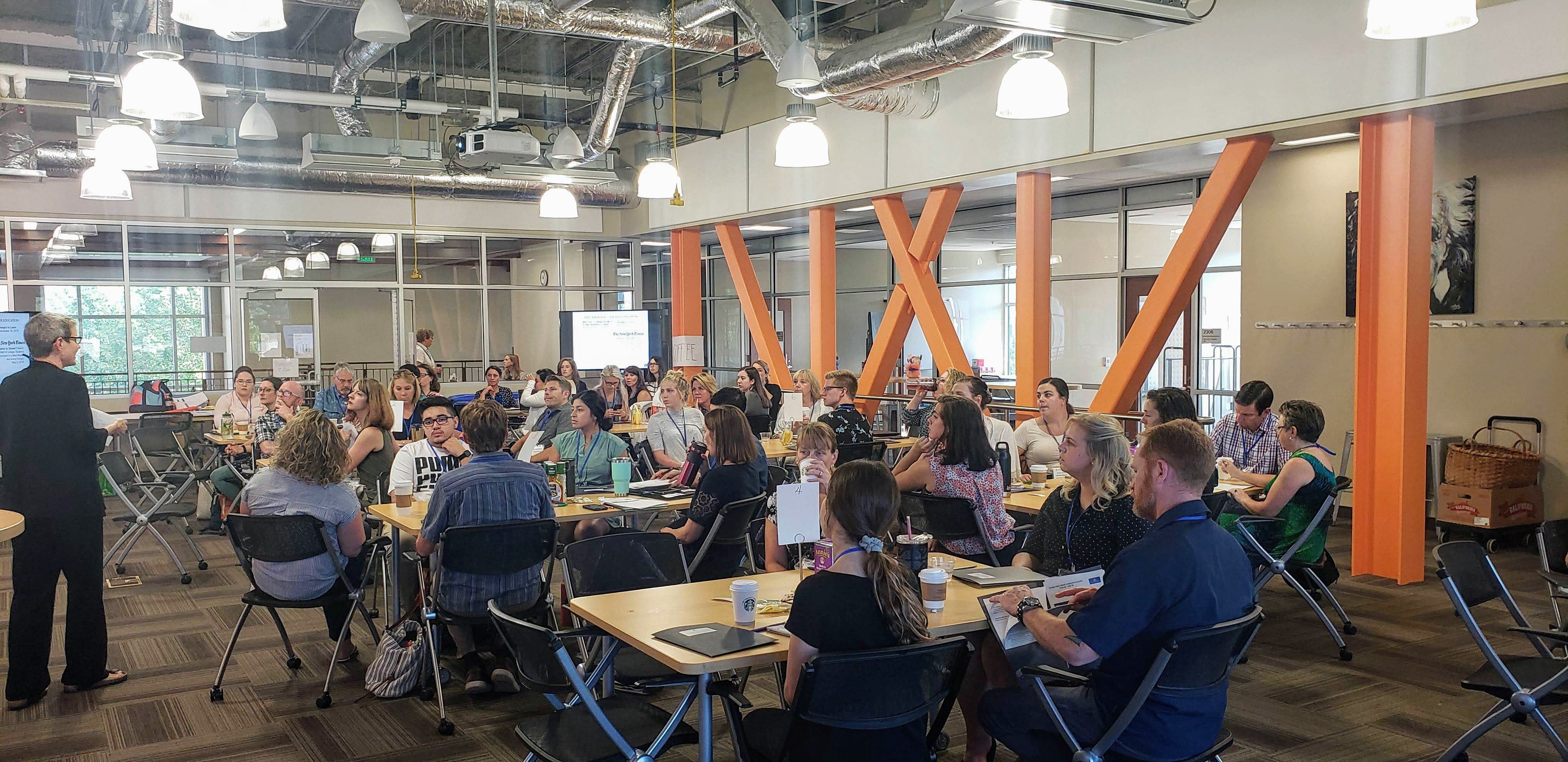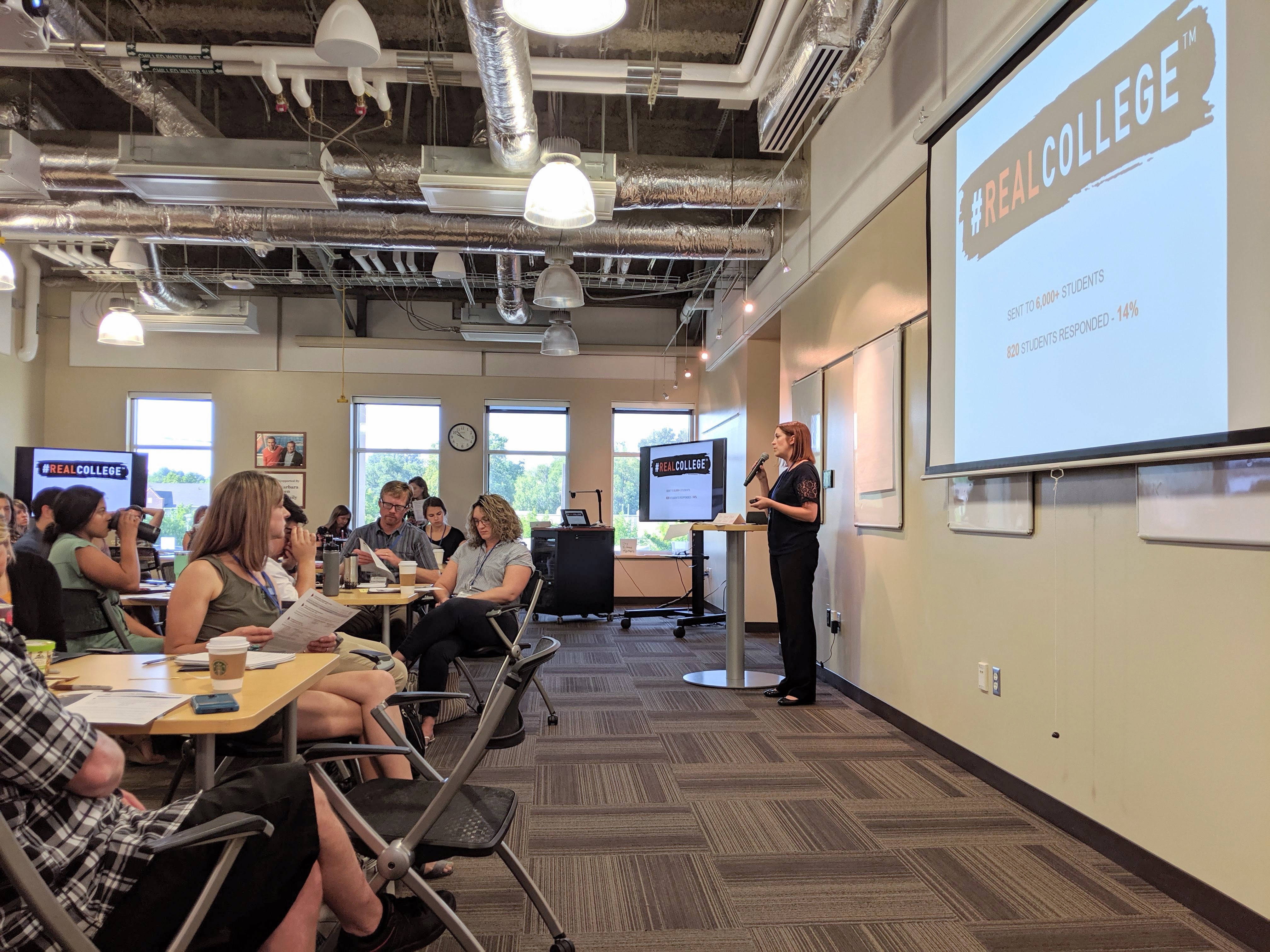
In an effort to support the well-being of students and reduce the stigma of food insecurity on campuses around the country, Boise State participated in the 2018 #RealCollege survey, a research initiative by the Hope Center for College, Community and Justice. The initiative sheds light on what the Hope Center refers to as the “new majority” of invisible students – those who are affected by life, logistics and a lack of resources that can alter the outcome of their college career.
The survey was dispersed to 6,000 Boise State students. The campus results, which are consistent with national survey results, found that 36 percent of respondents had experienced food insecurity in the past 30 days, 47 percent had experienced housing insecurity, and 18 percent had experienced homelessness in the past year.
As a response to the #RealCollege survey, the university hosted the first Student Basic Needs Collaborative Summit in July. Students, faculty and staff representing numerous departments at Boise State came together with organizations including the Idaho Foodbank, Idaho Hunger Relief Task Force and United Way of Treasure Valley to better coordinate services and support across campus and in the community. Participants mapped resources, created a one-year strategic plan and developed four working groups: action incubators (to prioritize and pilot projects), communication and awareness, assessment and evaluation, and backbone support.

Student food and housing insecurity have become a widespread issue at colleges and universities across the country. On-campus food drives, food pantries and a student emergency fund are among the many resources Boise State offers to support its students.
Take action:
Students, faculty and staff who would like to get involved in reducing food and housing insecurity on campus can complete this online form.
Ways to get involved include sharing information and resources, making a donation, participating in a working group, including information about basic needs resources on course syllabi, or enrolling in a course that engages with these issues on campus.
Resources for students:
Visit Boise State’s Student Life Essentials for a comprehensive guide for students. Resources include food and housing assistance, physical and emotional wellbeing, financial aid and a student emergency fund. Students who would like additional support or guidance can complete this form.
To learn more about the Student Basic Needs Collaborative Summit and the #RealCollege Survey, contact Jessie Dexter at jessiedexter@boisestate.edu or visit the Student Basic Needs website.